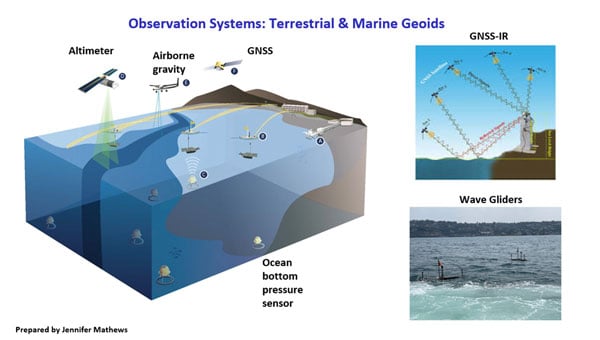Mobile Devices Galore
Few, if any, technology products reach a worldwide audience hotter than mobile devices. I’m talking about smartphones, tablets, handhelds, and even notebooks to some extent. When’s the last time you bought a desktop computer?
As I mentioned in my March 23 Geospatial Solutions column, at the GIS in Action conference I asked a Google presenter if he thought the mobile phone is going to be the primary mobile device people will carry. He said, “No, it’s going to be the tablet computer.”
The competition certainly seems to be between the smartphone and the tablet, or maybe a hybrid version of the two. From a geospatial user perspective, we’ve been showered these past few months with tablet device offerings.
1. Kindle Fire. The most significant tablet computer introduced since the iPad two years ago. Its low price has opened up the tablet market to a new level of adopters. Kindle Fire is the poster child for the many, many Android-based tablets on the market from Sony, Samsung, Motorola, LG, ASUS, etc.
Salient features: Wi-Fi, Android operating system, web browsing, less than US$200. It’s all about the low price.
Oops: Doesn’t run the latest Google Android operating system.
Geospatial apps: ArcGIS for Kindle Fire
Adoption: 5+ million sold since its introduction last fall.
2. Apple iPad. This product started the new revolution in tablet computing. Apple’s proprietary style may hurt it as competition from Google Android devices heats up.
Salient Features: The defacto standard for tablet computing. Apps, apps, apps, and more apps. Shares the same operating system as the iPhone and iTouch.
Oops: One trick pony. There is only one iPad. Google will license Android to almost anyone. Closed Bluetooth so you can’t interface to external instruments (GPS, laser rangefinders, etc.).
Geospatial apps: ArcGIS for iOS, iCMTGIS, iGIS, GeoJot, GISPro
Adoption: 75+ million sold since its introduction two years ago. The latest iPad sold 3 million units in the first three days it was available.
3. Windows-based tablets. Acer Iconia Tab Series, Samsung Series 7. Windows-based tablet computers at near iPad prices.
Salient Features: Microsoft Windows 7 operating system. GIS software compatibility.
Oops: Battery life, expensive.
Geospatial apps: Take your pick. Virtually any GIS app designed for Windows XP/7 will run on these tablets.
Adoption: Weak. Although Microsoft has been promoting tablet computers for 10+ years, they are getting beat up in the tablet market, at least with the general public. The Windows operating system still has a lot of value with professional users due to software/workflow compatibility. Be on the lookout for Windows 8 and Microsoft Office apps (optimized for low power, etc.) as Microsoft tries to leverage the power of Windows and match the appeal of the Ipad.
Look for more coverage on smartphones and handhelds soon.
Thanks, and see you next week.


















Follow Us